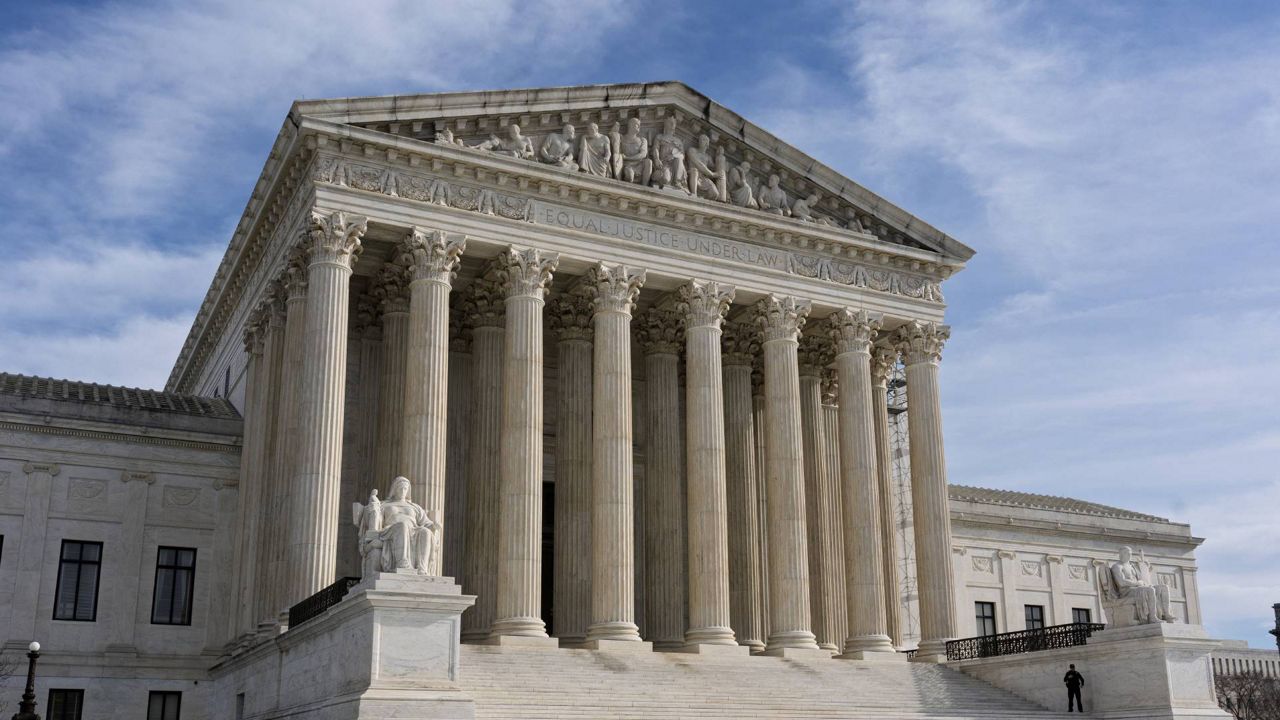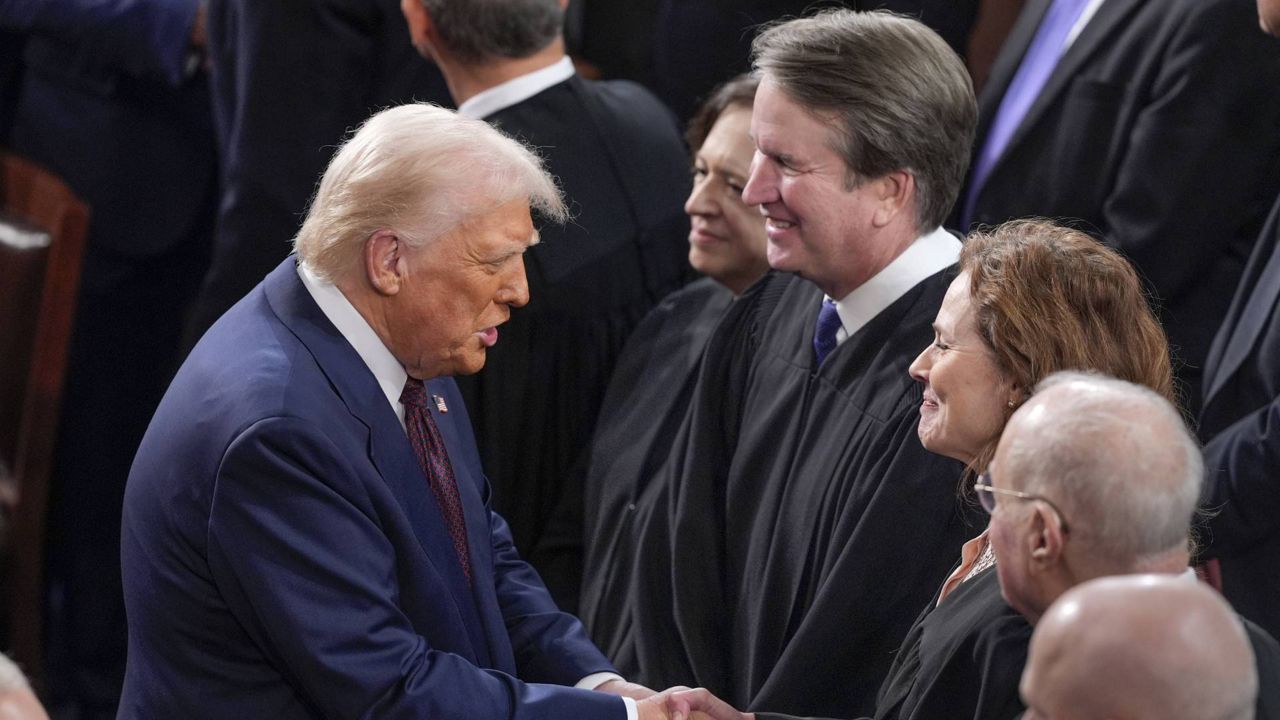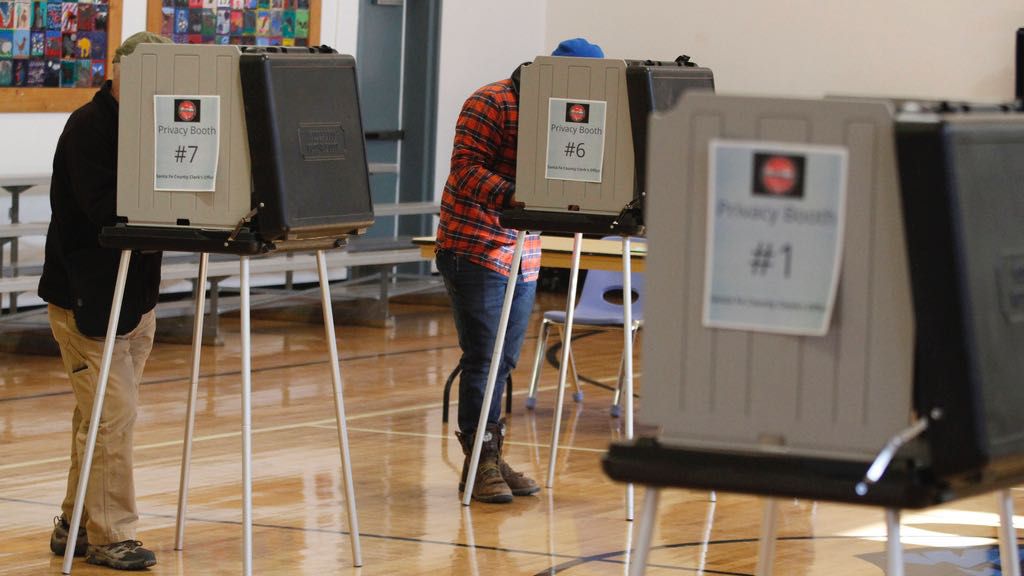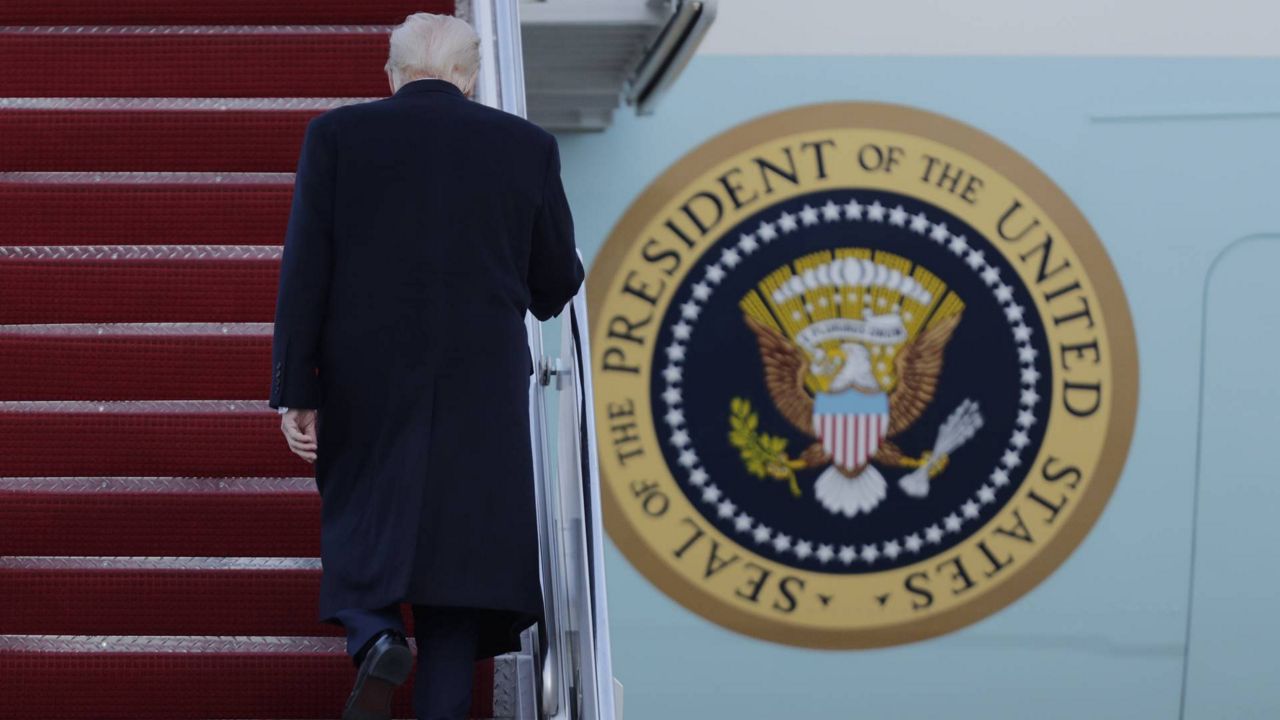Next year’s presidential election could be one of the most consequential in U.S history, and it will likely be one of the most scrutinized.
What You Need To Know
- Donald Trump's false claims about election fraud in 2020 have put greater scrutiny on how votes are cast and counted, especially as technology is rapidly advancing to attack voter infrastructure and sow public discord
- Since Russia meddled in the 2016 election, Department of Homeland Security has been working to increase election security
- While cybersecurity remains top of mind, for the people actually working the polls on Election Day, there is a very real concern for their personal safety
- Protecting voters and their ballots from outside influence doesn’t come without cost, and that would require Congress to set aside funds in its looming budget to do so
Former President Donald Trump, who remains the GOP frontrunner in spite of his legal woes, has continued to make unsupported claims of voter fraud since he left office and hit the campaign trail for his third consecutive White House bid. Trump’s claims have weakened public trust in the American election system, which state and federal officials are trying to now strengthen.
“Every election has about six months of lead time of preparation, at least to go into it,” Dustin Czarny, Democratic elections commissioner in Onondaga County, New York, told Spectrum News. “So we’re always preparing for multiple elections at the same time.”
While Trump’s claims of fraud have been disproven and have even been cited in his fourth indictment, in Georgia, the allegations have put greater scrutiny on how votes are cast and counted, especially as technology is rapidly advancing to attack voter infrastructure and sow public discord.
“I would say the biggest threat is probably the unknown threat, the emerging technology that has to do with AI [artificial intelligence],” said Connie Uthoff, director of the cybersecurity masters program at The George Washington University. “Just because of the capabilities and things that people can do already — and it's not even 2024 yet — with deep fakes, people can make fake videos, fake emails at a scale that's never been seen before and add a sophistication that hasn't been able to be seen before. And it can undermine the faith that people have in our democratic processes and in the elections.”
In 2016, Russia meddled in the election with actions ranging from hacking the Democratic National Committee’s computers and the Hillary Clinton campaign to posting propaganda on social media sites. The Department of Homeland Security has since been working to increase election security. Uthoff said the DHS is “doing as much as they can.”
“They're aware of evolving technology and how people are using evolving technology already, and they're coming up with solutions to address that,” Uthoff told Spectrum.
While cybersecurity remains top of mind, for the people actually working the polls on Election Day, there is a very real concern for their personal safety.
“I'm concerned for both … cybersecurity and in-person security,” Czarny said. “We live in a very interesting time, and unfortunately, the tensions are high. They're getting higher with all of the machinations around the indictments, and that with the former president, who, right now looks like he'll be on the ballot, at least going into the presidential primaries.
“And so physical concern for my election inspectors is pretty high,” he added. “We have emergency procedures that we put into our training for what will happen, and we work with our local partners, the sheriff's and police departments to let them know where the polling places are and to be able to respond in a very quick manner.”
Following his loss in Georgia in 2020, Trump and his allies targeted election workers, specifically Ruby Freeman and her daughter, Shaye Moss. For years, the mother-daughter pair were the focus of conspiracy theories. Freeman fled her home because she was being targeted after her address was shared publicly, and she stopped giving her real name for takeout orders.
“There is nowhere I feel safe. Nowhere,” Freeman said in testimony last year to the U.S. House Jan. 6 committee. "I've lost my name, and I've lost my reputation. I've lost my sense of security, all because a group of people starting with No. 45 and his ally Rudy Giuliani decided to scapegoat me and my daughter Shaye to push their own lies about how the presidential election was stolen."
Freeman and Moss were cleared of any wrongdoing by the FBI and the Georgia Bureau of Investigation, but the attacks of a stolen election continue from both the former president and his supporters.
Another wild card when it comes to the 2024 election: funding.
Protecting voters and their ballots from outside influence doesn’t come without cost, and that would require Congress to set aside funds in its looming budget to do so.
“Election machines, voting equipment, just like any other technology is going to age out,” said Derek Tisler, counsel at the Brennan Center for Justice. “That has an average lifespan, just like your phone, your computer, whatever it may be. After so many years, it's just going to break down more often. It's going to be more vulnerable. It's going to not have all of the security features that we expect of the latest technology.
“Even though we saw this huge round of funding in 2018, 2019, heading into 2020, some of those states that just replaced their voting systems are already going to be hitting the end of a cycle again,” Tisler explained. “So what's key is it's not just Congress providing more funding, but it's providing reliable funding. Election officials need to be able to count on that funding year after year.”
It remains to be seen whether or not Congress will pony up the necessary funds to help support local municipalities with elections, but there does seem to be at least bipartisan support from voters. A recent poll by Citizen Data found 69% of Americans who participated in the study believed the federal government should be just as, if not more, responsible for election funding than local municipalities and states.









